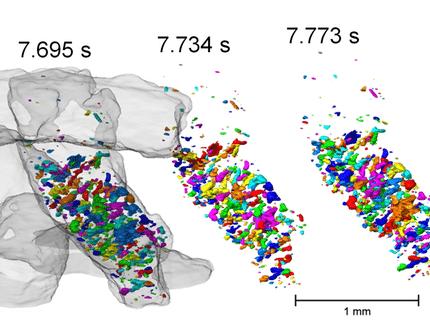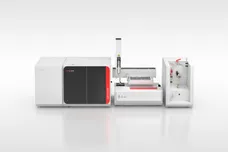Fraunhofer IZFP celebrates 45 years in Saarland
Advertisement
The creation of Saarland's first public research institute will be celebrated for the 45th time in March 2017. Although established long ago, Fraunhofer IZFP has remained young and modern, which can be seen in a new strategic alignment that is shifting the institute's focus from traditional nondestructive testing services to leading-edge self-learning sensor and monitoring systems modeled on the concepts of Big Data and Industry 4.0 currently being promoted by the German government.
45 years ago, and after several years of preparation, the first public research institute was created in Saarland under the leadership of Prof. Paul Höller. The strategy was to focus the research activities on metals, since steel and iron, literally at home in Saarland, were the dominant materials and nuclear energy was the primary field of application. Nondestructive testing was identified as the key strategy behind the applied research activities.
New, intelligent self-learning sensor systems
With the appointment of Prof. Dr.-Ing. Randolf Hanke to Executive Director on October 1, 2013, an expert in the field of nondestructive testing with proven market know-how took over the reins of the institute. The expansion of the leadership team was tied to a change of course and a new strategic alignment. “Fraunhofer IZFP has fundamentally changed over the past three years. As an internationally-renowned R & D center for nondestructive testing (NDT), one of our central goals was to shift the focus of our research activities from conventional NDT to the automated generation and intelligent analysis of increasingly complex, multi-dimensional data streams,” explains Prof. Hanke. Fraunhofer IZFP places special emphasis on those processes that involve the interaction of man/materials or machine/materials. These processes are characterized primarily by relying on a new, Fraunhofer IZFP-developed product life cycle that ranges from material creation, product creation and product utilization, to product recycling. “Our scientists and engineers develop new, validated technology platforms for the digital world of tomorrow and for modern industrial quality assurance applications,” adds Prof. Hanke.
Close university ties
The scientific basis of the research activities at Fraunhofer IZFP is shaped by close cooperation with various schools at the University of Saarland and the University of Applied Sciences in Saarbrucken, particularly through the newly-created joint project AutomaTiQ. In addition, together with the Fraunhofer Innovation Cluster Automotive Quality Saar AQS, which is located at Fraunhofer IZFP, and in line with our new philosophy, we provide market-ready, smart one-stop solutions designed for ensuring the quality of materials and components, especially in the automotive industry. The focus here is on the main automobile components, an area in which the materials and overall quality are a critical aspect, as well as on innovations that lead to the efficient use of the materials and smooth production flows.
“These and other measures will help us hone the profile of the institute to better anticipate the needs of the market. To do that, we are also expanding our technology and scientific know-how for cost-effectively processing and implementing customer orders in marketable and application-oriented solutions and products”, said Prof. Hanke in conclusion.
































































